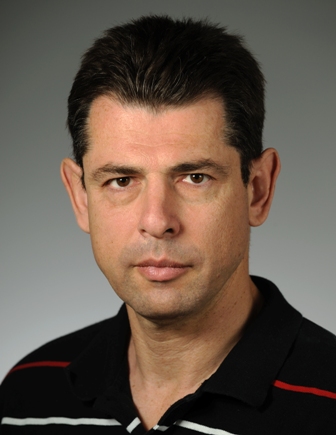 Markus Heilig received his MD in 1986 and his PhD in Experimental Psychiatry in 1989, both from Lund University, Sweden. He was postdoctoral fellow with prof. George Koob at The Scripps Research Institute 1990 – 1992. Upon returning to Sweden and completing clinical training in psychiatry, he served at the Karolinska Institute in various clinical and academic leadership capacities until 2004. At that time, he was recruited to the US National Institute on Alcohol Abuse and Alcoholism (NIAAA) to serve as its Clinical Director and chief of its Laboratory of Clinical and Translational studies. In 2015, he was recruited back to Sweden and Linköping University under a novel program supported by the Swedish Research Council. At Linköping Univ, he will be professor of psychiatry and direct a new, interdisciplinary Center on Social and Affective Neuroscience.
Markus Heilig received his MD in 1986 and his PhD in Experimental Psychiatry in 1989, both from Lund University, Sweden. He was postdoctoral fellow with prof. George Koob at The Scripps Research Institute 1990 – 1992. Upon returning to Sweden and completing clinical training in psychiatry, he served at the Karolinska Institute in various clinical and academic leadership capacities until 2004. At that time, he was recruited to the US National Institute on Alcohol Abuse and Alcoholism (NIAAA) to serve as its Clinical Director and chief of its Laboratory of Clinical and Translational studies. In 2015, he was recruited back to Sweden and Linköping University under a novel program supported by the Swedish Research Council. At Linköping Univ, he will be professor of psychiatry and direct a new, interdisciplinary Center on Social and Affective Neuroscience.
Heilig has authored more than 200 peer reviewed journal articles, including papers that have appeared in Science, PNAS, Lancet, Archives of General Psychiatry and other high impact journals. This work has in total been the subject of more than 8000 citations. Original discoveries include the role of neuropeptide Y (NPY) as an endogenous anti-stress transmitter; the role of substance P (SP) and its neurokinin 1 (NK1) receptors in control of alcohol reward; and the role of molecular adaptations within the amygdala complex for escalation of voluntary alcohol intake; and the role of genetic variation in the gene encoding the mu-opioid receptor gene for individual differences in alcohol and drug reward.
The Heilig lab currently studies stress and negative affect as target mechanisms for new alcoholism medications. Currently pursued targets include neuropeptide Y, corticotropin releasing hormone, neurokinins, and nociceptin. These systems are studied with a translational approach which spans from gene expression analysis in rodent models to human experimental medicine.
A trivial fact: People are different. At a party, some will get up on the table and dance after a few drinks, while others will fall asleep on the couch after the same dose. But what determines these differences? It has long been known that some individual differences in alcohol responses are associated with genetic risk to develop alcohol addiction, but the specific genes and mechanisms have not been understood. This talk will introduce the role of endogenous opioids and their receptors in mediating alcohol reward, using data that span from mice with gene deletions to humans treated with opioid receptor blockers. It will then discuss functional genetic variation in the gene encoding the mu-opioid receptor, and its role for alcohol reward and treatment responses to opioid blockers. The talk will use four different species (mouse, rat, rhesus macaque and homo sapiens) to illustrate the power of translational approaches to complex neuroscience problems, and end up with some clinically useful implications for personalized medicine approaches to treatment of alcohol addiction.